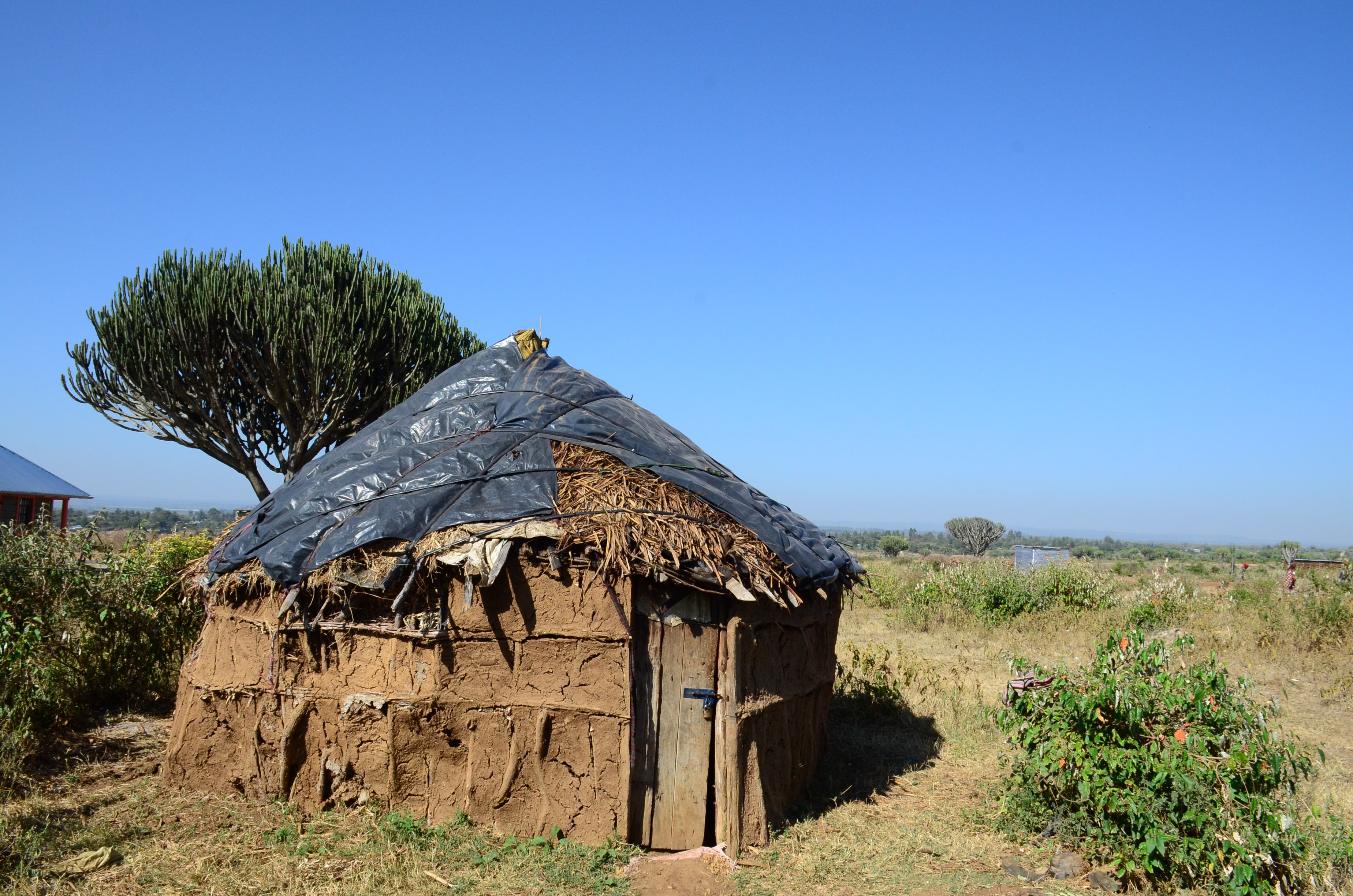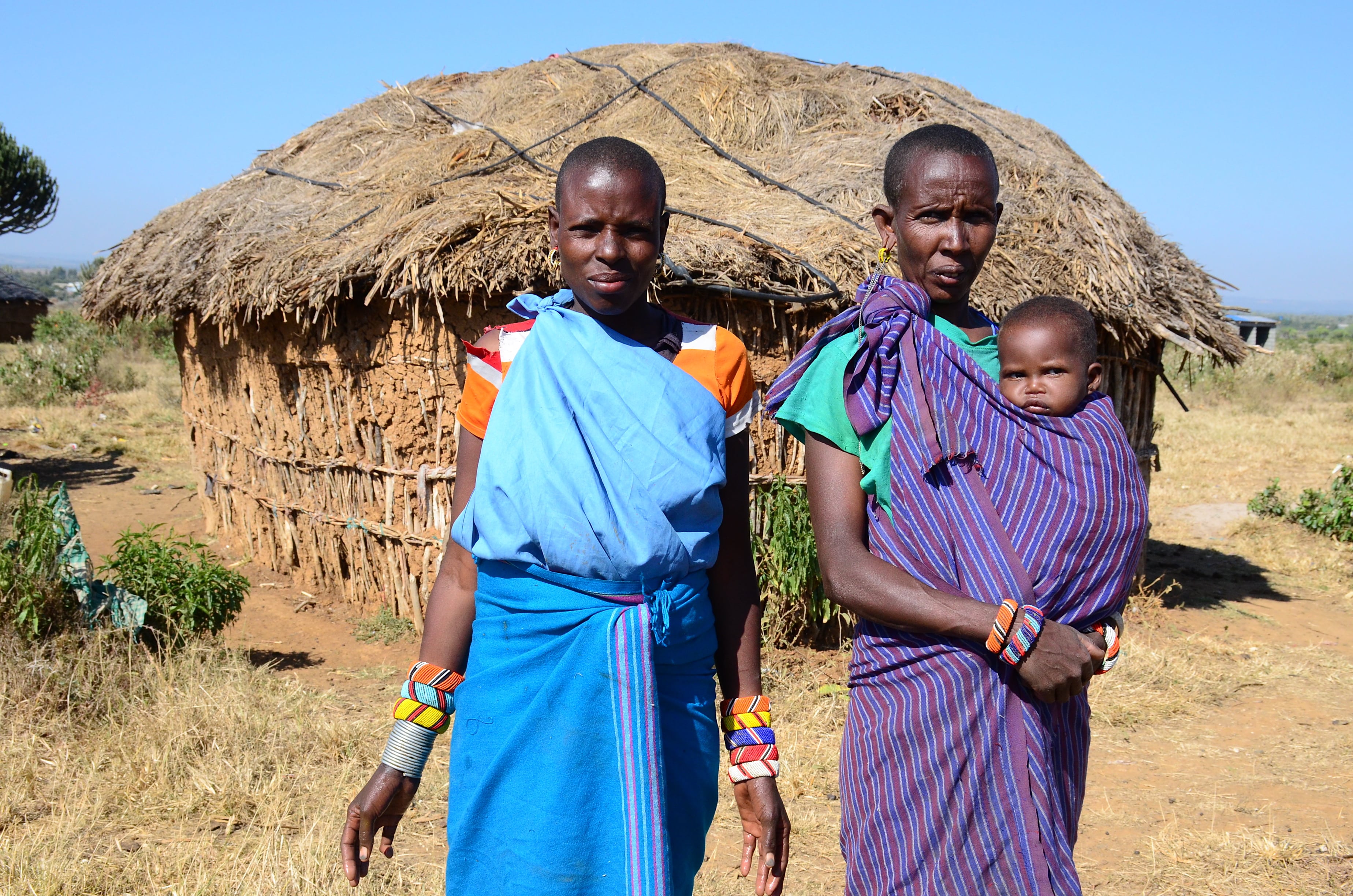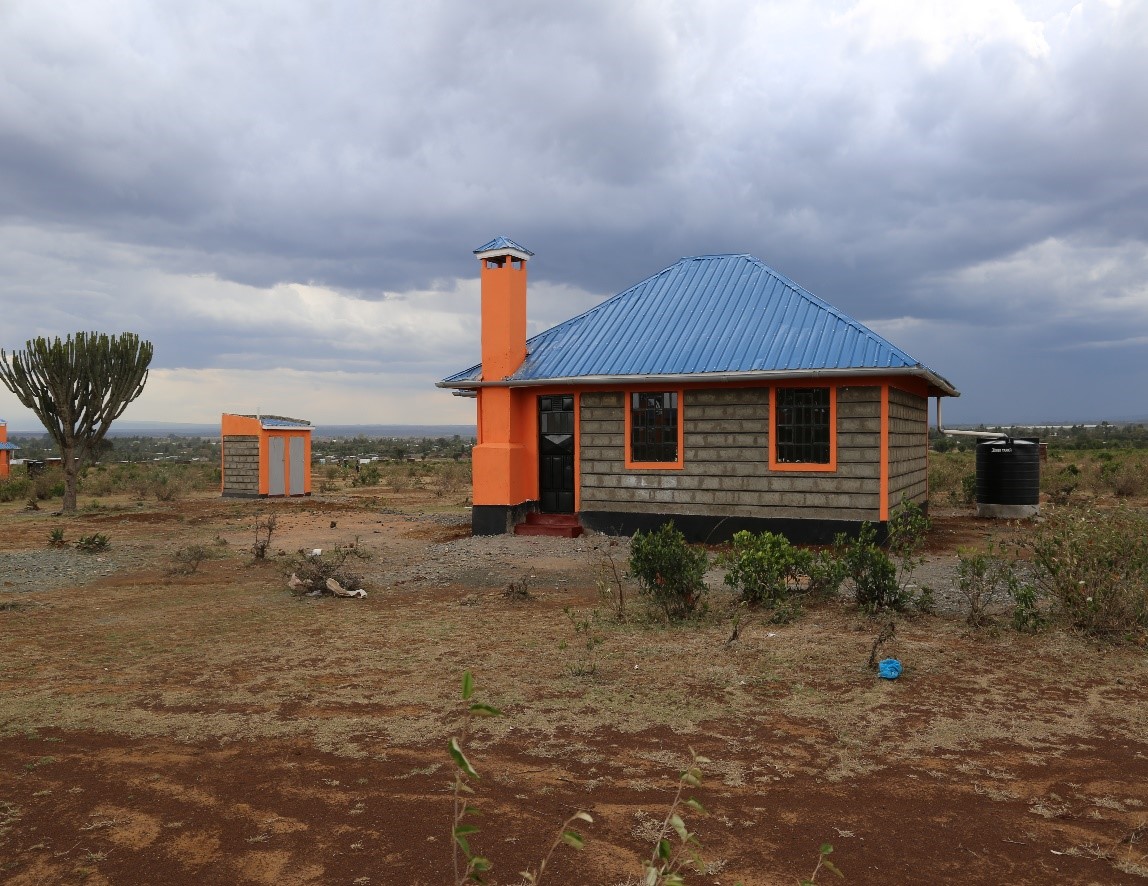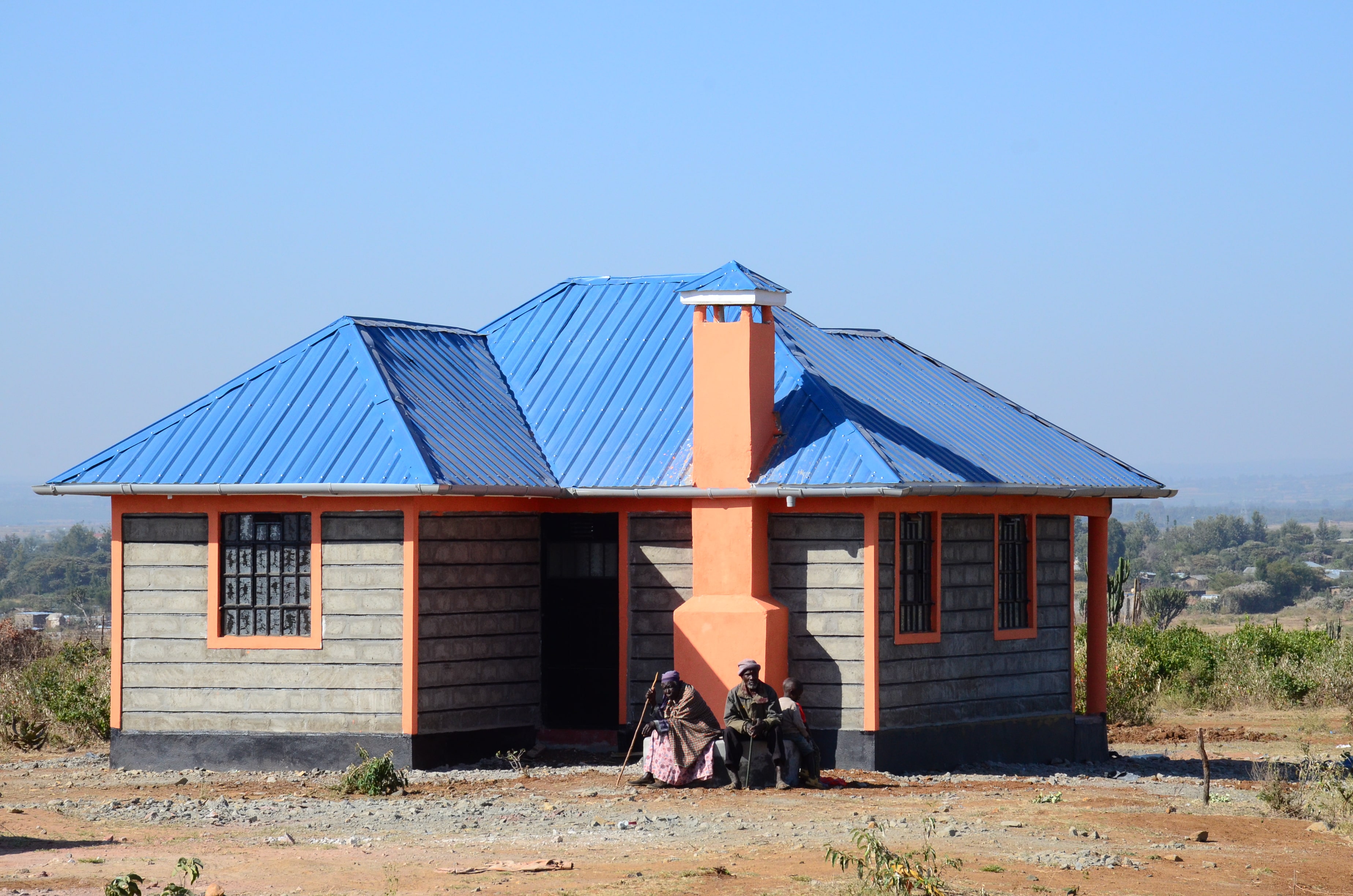Miles away from Kenya’s capital Nairobi is Kandutura settlement. It is located in Rumuruti Location, Laikipia North Sub County, in Laikipia County. The settlement mainly comprises of immigrants who left their ancestral homes due to political conflicts and settled as squatters in an open field in Kandutura village. The number of families living in Kandutura settlement is over 600, making it one of the largest squatter settlements in Laikipia County. The majority of the people in the settlement work as cattle keepers or casual laborers in nearby ranches and flower farms, earning very little income. The poverty level in this community is quite high and as a result, most families cannot afford to put up decent shelters and end up living in small shanties that can barely accommodate their often large family members.
Sample of houses at Kandutura Settlement
Habitat for Humanity Kenya’s Intervention
In 2016, the Ministry of Housing in the County government of Laikipia introduced Habitat for Humanity Kenya to Kandutura settlement as a potential area for intervention. The county government sought to build a partnership with, and tap into Habitat Kenya’s expertise in affordable housing. Habitat Kenya proceeded to conduct an assessment of the settlement and identified the needs and challenges facing the community. The findings showed very high levels of poverty, inadequate housing conditions, lack of land tenure security, poor or no sanitation, and a severe lack of water. In Rumuruti Location, where the Kandutura settlement is located, only 17% of the residents had access to water, the rest would get water from a neighboring location or the river.
With these findings, Habitat Kenya designed a project to:
- Address land tenure issues through advocacy
- Identify and construct homes for vulnerable people
- Provide water and sanitation solutions
- Build livelihood capacities of the community.
Achievements:
- Identified and created a beneficiary database of 270 poor families in need of decent housing. The beneficiaries comprise the elderly, orphans, widows, and people living with disabilities.
- Constructed new 2 and 3 bed-roomed houses for 25 beneficiaries, with each house fitted with a 2000 litre water tank and a pit latrine.
- Through Habitat for Humanity Kenya’s advocacy efforts, in 2017 the Laikipia County Assembly tabled a motion and approved the allocation of 50 acres of land to the people living in the settlement. The area was then officially surveyed and sub-divided by the Lands Registry. This was the first step towards rebuilding the livelihood of this community. So far, over 400 families have been issued title deeds.
- Habitat for Humanity Kenya supported members of Kandutura to form a housing cooperative aimed at building the livelihood capacities of the community. The housing cooperative comprises community members that have some income. So far the housing cooperative has got 472 members and has raised approximately Kshs 1M ($10,000) worth of deposits. The plan by the cooperative is to purchase a piece of land and put up housing units for the members of the housing cooperative. The members were also trained on producing Interlocking Stabilized Soil Blocks (ISSBs) by the National government through the ministry of housing in Laikipia county and are now making the blocks for commercial use.
New houses built by Habitat Kenya for poor families at Kandutura
Current State of Kandutura Settlement
There are approximately 240 households in the Kandutura settlement that still live in poor housing conditions and require support.
Next steps by Habitat for Humanity Kenya: A Settlement Based Approach
The need and demand for decent and adequate housing is quite huge and cannot be addressed by a single organization. It calls for Habitat Kenya, the government, and other like-minded stakeholders to develop holistic strategies to support community members to own new homes and improve their health and livelihood status.
Habitat for Humanity Kenya plans to take a ‘settlement-based approach’ to stimulate community-enabled self-help housing processes that will address housing needs as well as other related services such as WASH, and energy. We recognize that disadvantaged groups face several challenges e.g. drought-related, inadequate housing, and poor access to basic services. To address this, Habitat for Humanity Kenya shall convene consultative meetings with partners to collect information, carry out a situational and individual analysis of the community. This will then be used to design a holistic intervention project and raise funds to address all (or most) of the needs in the various settlements including, housing, WASH, energy, livelihood empowerment.

